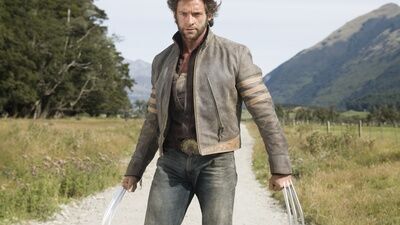Truth is, “X-Men Origins: Wolverine” was commercially successful but not a big-enough smash to justify the studio continuing in that specific direction for future films. (Plus, it cannot be overstated how much true-blue comic fans despised the movie.) Still, that 2009 film has been discussed more in recent times than it has in years because of the imminent arrival of “Deadpool & Wolverine,” which will be the second big-screen pairing of those two Marvel characters—the first, of course, was in “X-Men Origins: Wolverine,” which featured Ryan Reynolds as a very different iteration of Deadpool. (Even if you’ve never seen “X-Men Origins: Wolverine,” you’re probably aware of it because of how much Reynolds has made fun of that film in his two Deadpool movies.)
If you revisit “X-Men Origins: Wolverine,” you will not discover a misunderstood masterpiece. To be honest, I didn’t hate it when I saw it in 2009—I thought it was pretty disposable, although Jackman was predictably great—but I hadn’t given it a single thought in the last 15 years. But to prepare for “Deadpool & Wolverine,” I gave it a fresh watch. The movie’s still not good, but what was striking was realizing I was witnessing the beginning of an industry era that’s still with us—if anything, it’s even more pervasive today. “X-Men Origins: Wolverine” remains bad, but it also represents the dawn of Hollywood’s spin-off age. And that era’s problems are embodied in this movie.
“X-Men Origins: Wolverine” was by no means the first spin-off film—and it wasn’t even the first film of this kind spawned from a blockbuster. “The Fugitive” begat “U.S. Marshalls.” Brendan Fraser’s “Mummy” films gave us “The Scorpion King.” “Daredevil” paved the way for “Elektra.” The “Barbershop” series opened the door for “Beauty Shop.” “Bruce Almighty” was so huge that we got “Evan Almighty.”
Those earlier spin-off movies had two things in common. One, they were mediocre, and two, with a few exceptions, they failed to be financial successes. Not many people would think back on those spin-offs fondly. Generally speaking, they felt a little desperate, a little undignified—merely vain attempts to extend franchises beyond their logical end point. True, “The Scorpion King” was actually a fairly sizable hit, but its sequels were cheapo straight-to-video affairs that didn’t feature Dwayne Johnson. To varying degrees, spin-offs were considered weird, vaguely embarrassing cash-grabs.

